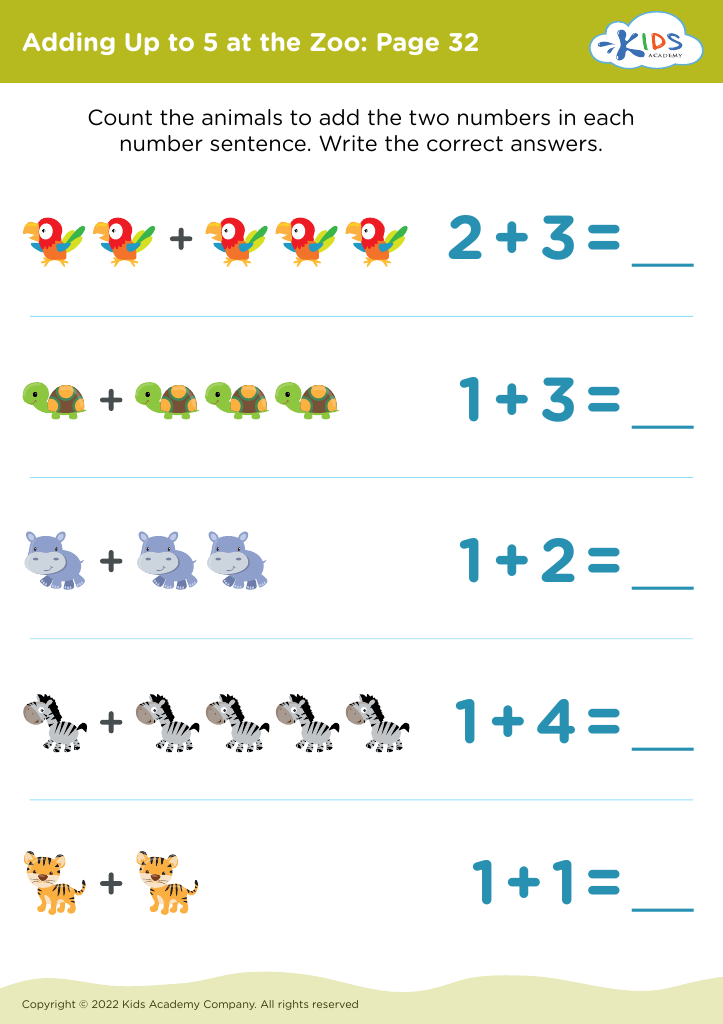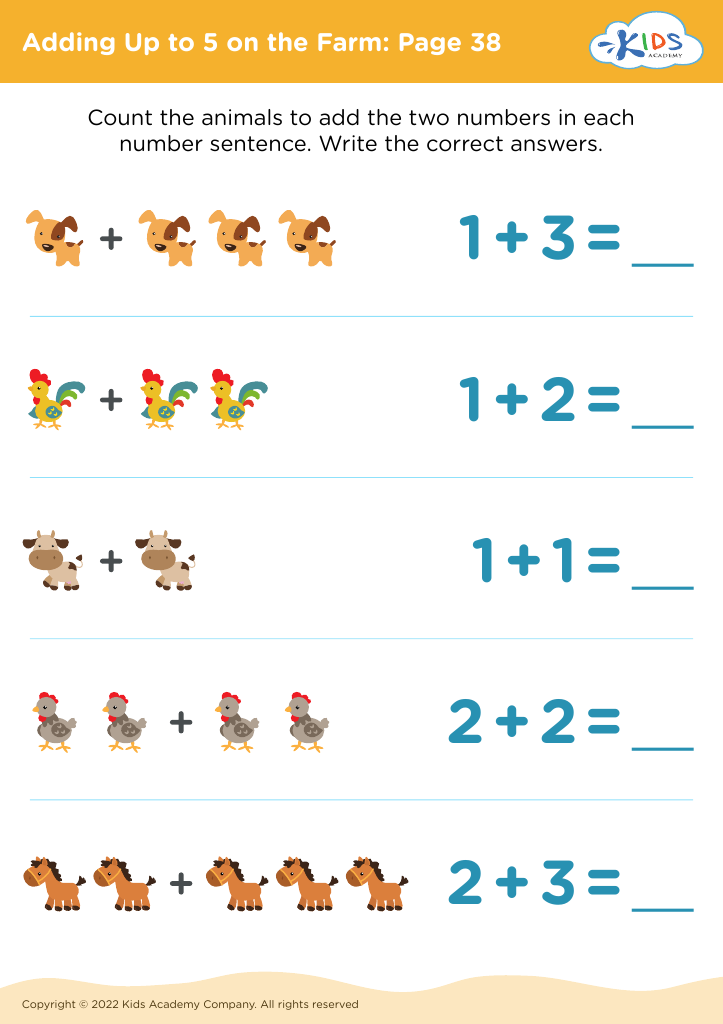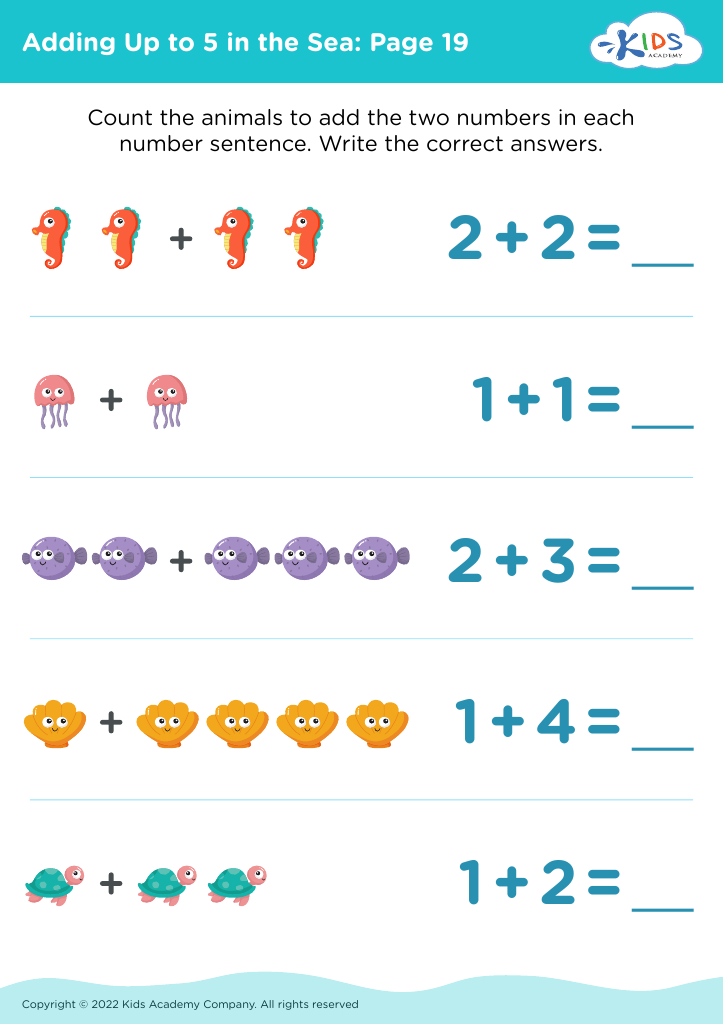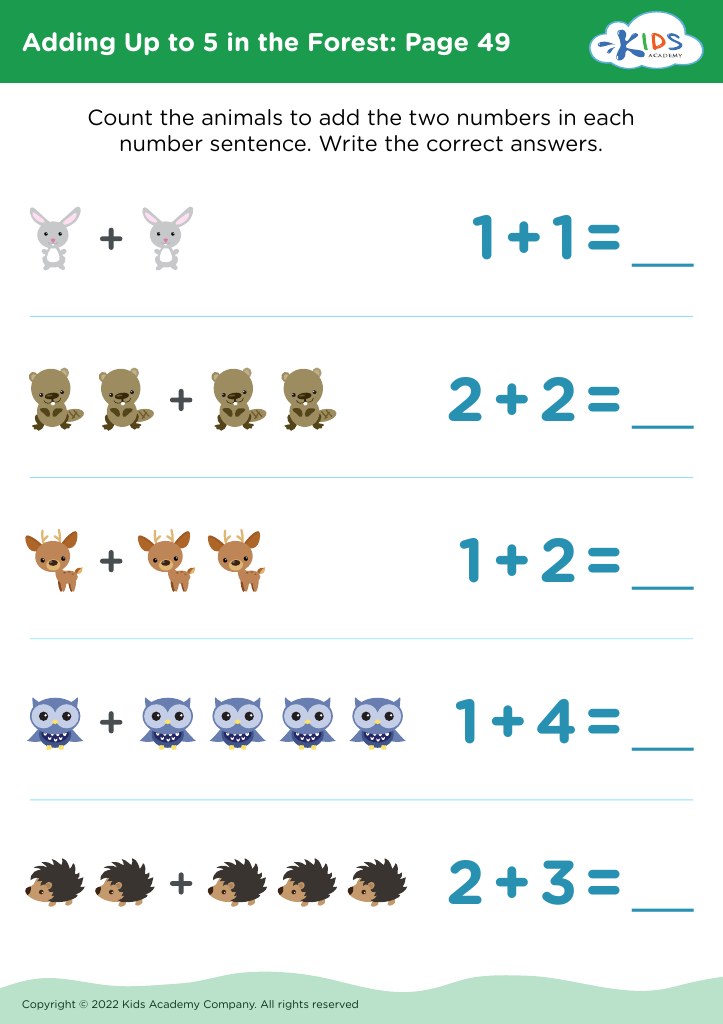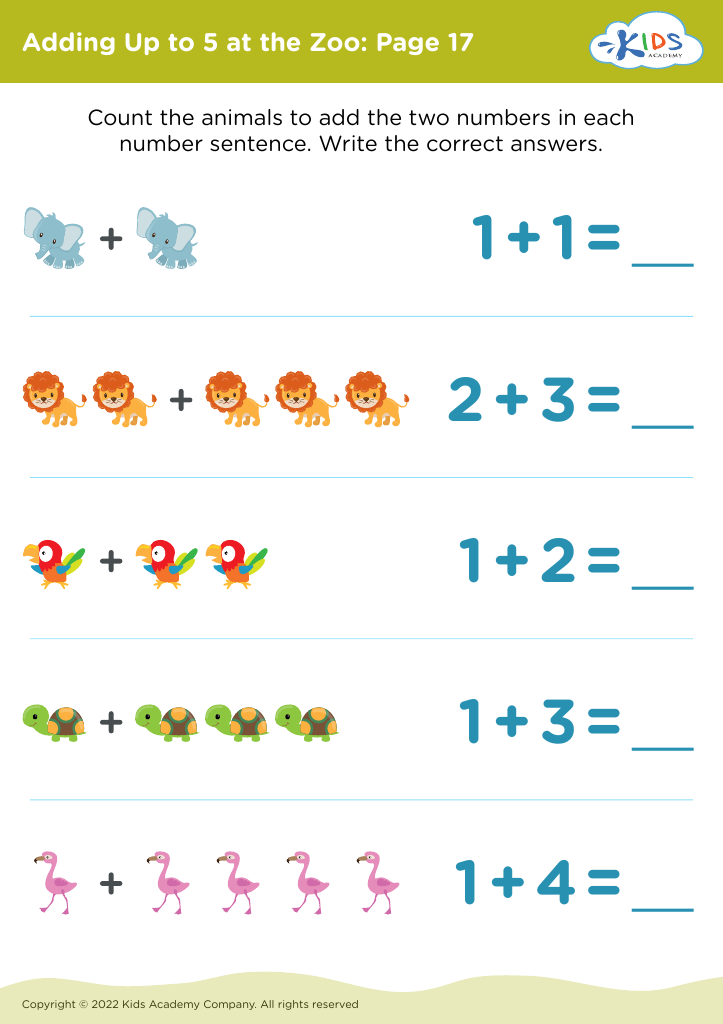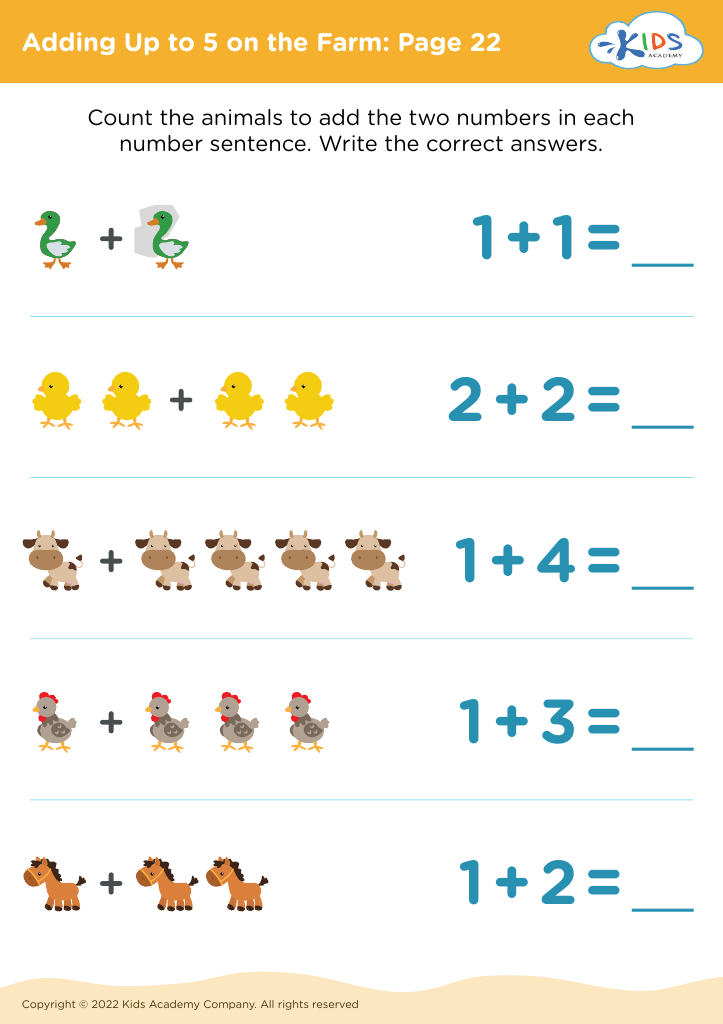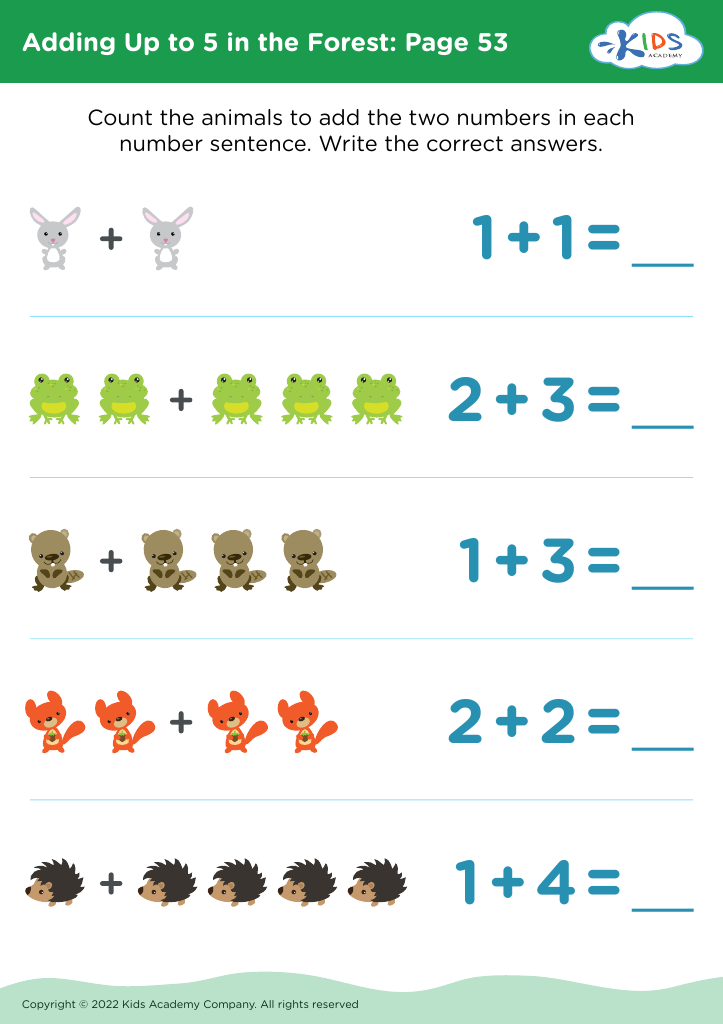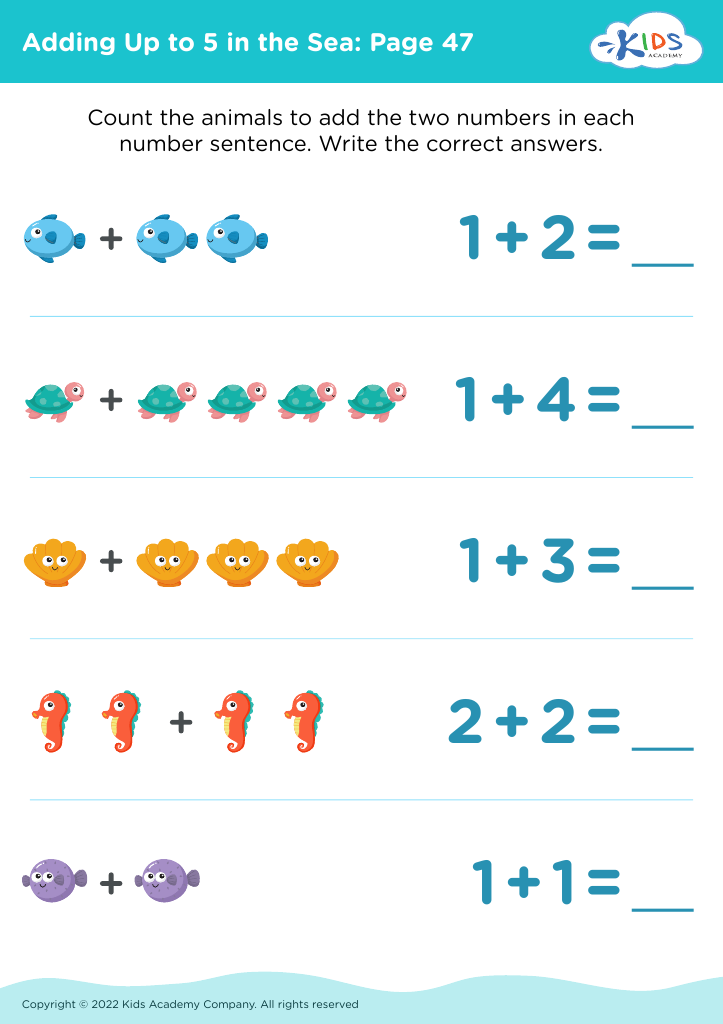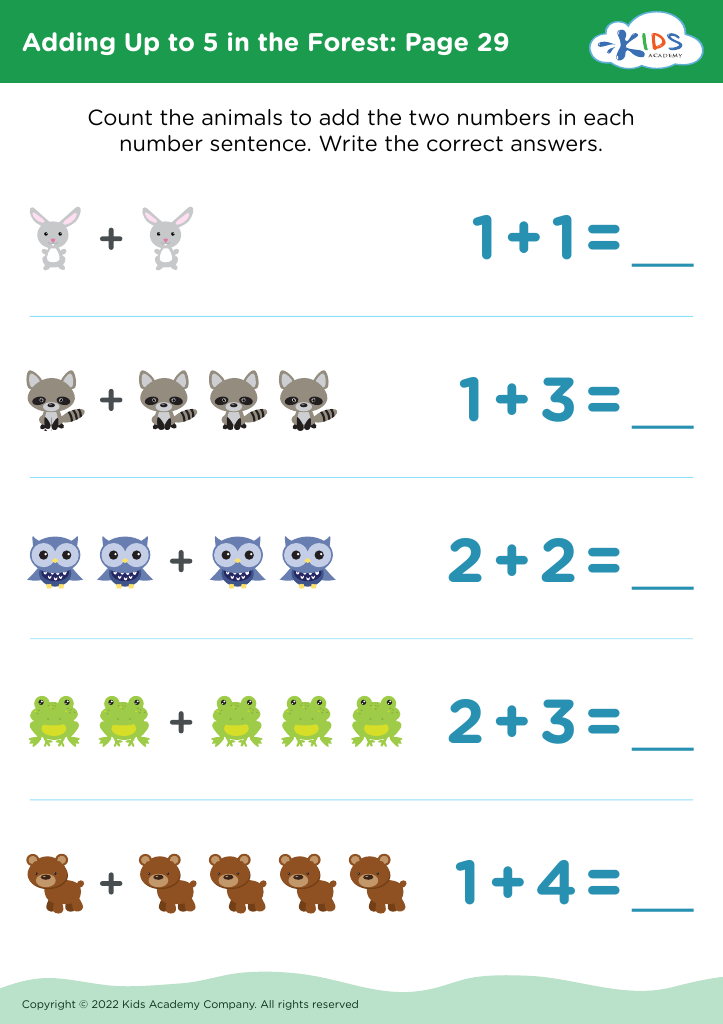Counting proficiency Adding Up to 5 Worksheets for Ages 3-6
9 filtered results
-
From - To
Introduce your little learners to the basics of arithmetic with our “Counting Proficiency: Adding Up to 5” worksheets, designed especially for ages 3-6. These fun and engaging printables from Kids Academy help young children build counting and addition skills through colorful graphics and interactive activities. By gradually increasing the level of difficulty, these worksheets nurture confidence and proficiency in early math skills, laying a strong foundation for future learning. Perfect for both classroom and home practice, they support cognitive development and make learning math enjoyable. Download now to inspire a love for numbers in your child!
Counting proficiency, particularly the ability to add up to 5, is crucial for children aged 3-6 as it lays the foundational groundwork for their future math skills. Mastery in this area helps children develop number sense, which is the understanding of numbers and their relationships. This is a critical skill that goes beyond rote counting, aiding children in understanding concepts of quantity, more than, less than, and equal to, which are all essential for tackling more advanced math problems in later stages.
Moreover, early math skills are linked to better academic performance not only in mathematics but across other subjects as well. Research shows that children who enter school with strong math skills tend to perform better in reading and general learning tasks. This period, known as the "sensitive period," is when children's brains are highly receptive to learning new information.
Counting and simple addition tasks also enhance cognitive abilities like memory, attention, and spatial reasoning. They promote persistence and problem-solving skills, as children learn to approach numbers methodically. Engaging in these activities can also build confidence and reduce math anxiety by providing children with a sense of accomplishment.
Overall, focusing on counting proficiency and simple addition can set a solid academic and cognitive foundation that supports overall learning and development.
